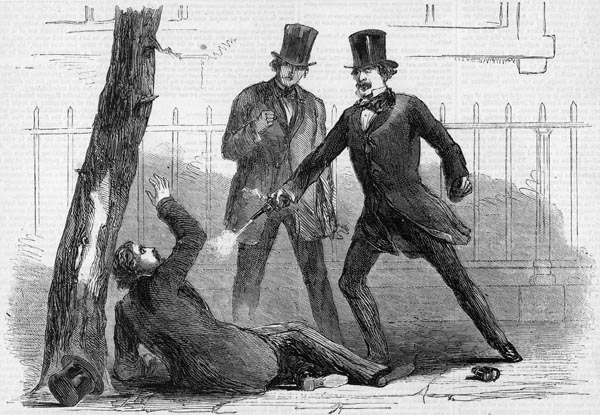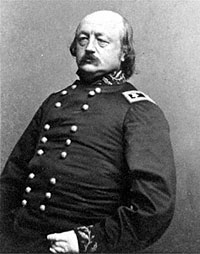A couple of days ago I went off on Jon Robin Baitz's Other Desert Cities, which I recently saw at the SpeakEasy theater in Boston. Despite some good dialogue, I found the play superficial and more than a little absurd. I spent a bit of time discussing how much I didn't like it.
But, usual, the failures of other writers, while pleasing, should also serve as an exercise for this particular writer. Smacking around a play most of my readers are unlikely to see seems to verge on the self-indulgent.
If I had been given the same idea as Baitz, what would I have done? And what can I learn from the exercise of playing with it?
To refresh your memory, the play concerns a fragile writer, Brooke, who returns home to her Reaganesque power-couple parents' house in Palm Springs to reveal that she's written a book about the tragic suicide of her antiwar activist older brother, who was involved in a bombing that accidentally killed someone. In addition to her parents Polly and Lyman, the characters are Trip, a brother who is producer of a Judge-Judy-like reality show and Polly's alcoholic sister Silda, Polly's former screenwriting partner.
Two divergent paths come to me immediately. The first is to play with the writer as writer, and dig more deeply into Brooke's writerly self. The second is to dump the writer persona as irrelevant, because, while having your secrets revealed in The New Yorker may be more painful than just having your neighbors know, that's a kind of measurement that's not relevant to a play about intra-family relations.
Though I have to point out, there are no secrets revealed in Brooke's book, as described. All of this painful stuff came out in the news, was talked about, chewed over, had its effects on Polly and Lyman's relations with their buddies the Reagans, everything. Her blame of her parents for those events can't be particularly new either.
There may be other ways to take this too, but I'll go for "writer" first. Brooke is a writer, a depressive who had a breakdown after the success of her first novel, which everyone in the play insists is brilliant, even at moments when they are angry enough to strangle her. Polly and Silda are both writers, who collaborated on a series of popular movies, until Silda quit. Trip seems to be a writer too. Actually the only non-writer is Lyman, a popular actor in Westerns and other popular films.
All of these writers are competitive, perceptive, and self-dramatizing. Or, at least, they should be. Brooke is blocked and will do anything become unblocked, including exploiting a private and painful tragedy. But instead of admitting this, she claims it is going to help everyone by clearing the air. Just because a writer is perceptive about others doesn't mean she is perceptive about herself.
But that's kind of where it ends. But she's facing, not a passive bunch of middle-aged theatergoers, but her writing mother, aunt, and brother. And, it turns out, her Aunt Silda served as Deep Throat for events that Brooke could not otherwise know anything about. In a sense, Brooke is Silda's cats paw here.
But to what end? First of all, everything in what we hear of Brooke's book was events she personally witnessed. It seems that Silda's intervention is purely stylistic.
Of course not! First off, she does play Brooke. Against Polly--because Polly did something that caused the breakup of their writing team, many years before. It might well have been Polly's drift to self-righteous Reaganism, which makes Silda want to puke.
As Brooke reveals what is in the book, Trip notes that she never talked to him, and he witnessed at least one scene that seems divergent from her story. But he was young. Does Polly then point out that the scene he says he is remembering is actually from one of those movies that she and Silda scripted? Memory is a tricky thing.
In Baitz's play, it is revealed that, aside from having bad faith, Brooke can't do elementary research, and completely misses the real story. But the "real story" is that her parents are even more vicious than she thinks they are: they let her spiral into suicidal depression as a consequence of a false version of reality. They are much worse than Brooke thought. Baitz seems to miss this inevitable conclusion of his scenario.
Instead, Brooke is a better writer than she is portrayed. She can see where there are gaps in the story, even if she can't figure out what is hidden in them. She reveals her conclusions. They are wrong, but so is the surface story. It is the cause of her brother's suicide that she can't understand.
In Hamlet and his Problems, T. S. Eliot said "Hamlet (the man) is dominated by an emotion which is inexpressible, because it is in excess of the facts as they appear." So, too, Brooke's older brother. But we're not Shakespeare, so we are going to dig out the invisible facts, to express his unexpressed emotion for him.
Polly and Silda have to fight over their writing breakup, which had to do with the effects their divergent politics had on their work. Trip has to work out why he remembers something the others claim is fiction, and Brooke has to face that she is a writer who will destroy her family rather than be blocked.
And Lyman? Lyman has stopped playing roles. Actors always seem smarter than they actually are, because they have access to all those great words. He has given up on great words. He loved his dead son, he loves his living son and daughter, and his wife, and he's willing to give Silda a pass because she used to write stuff that made him laugh. The actor will serve as the one still point in this scrum of wordsmiths.
Enough. Next time let's check out what happens if Brooke is not a writer.



